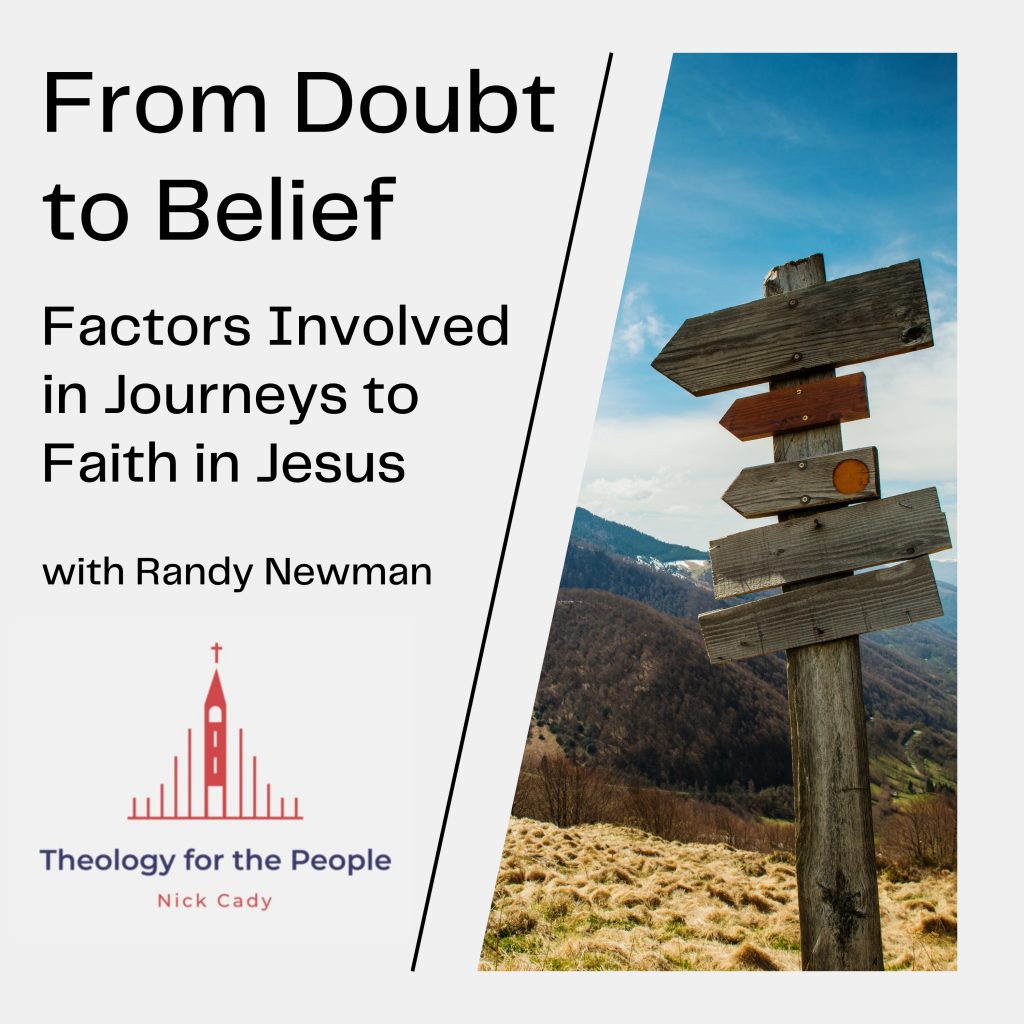
Earlier this year I added a page on this site where readers can submit questions or suggest topics (click here for that page). Recently I received this question:
My question is the following: What is the benefit of God’s human project?
If all of history since creation to the final day of judgement is in fact a great tragedy in the sense that there are souls which will ultimately be lost despite the absolute best intentions of God. Based on Revelation, the number of God’s children is only a fraction of the lost ones. Therefore what could represent such value for God which is worth this risk? I can’t name or imagine anything worth the sacrifice of eternal human souls. So why were his plans not “cancelled” after the first sin?
Personally, this is important to me because my wife and I are thinking about having children, and I can see no reason why I should take part in exposing another human to the possibility of damnation, even if the chances are minimal. I simply do not want to risk such a thing, regardless of the odds. And to be honest, even without the eternal perspective I would not force existence on Earth to anyone.
I can see however that this reasoning inevitably leads to the conclusion that God is evil and human existence should end as soon as possible in order to avoid further damage, and it is contradicting to the picture we see from other parts of the Bible (however, maybe this problem is somehow connected to issues such as the genocide of other nations like philistines or amalekites).
Are you aware of something which could provide some insight about this problem?
This is obviously not a merely theoretical question for you, and I appreciate the thought you’ve put into it.
Here are some thoughts:
This Life Matters
We must not diminish the goodness of this life. Sometimes Christians, in their focus on eternal destiny (which is appropriate and right), can forget the fact that when God created the world, he looked at it and said, “It is good,” and he looked at the human life that he had created and declared that it was “very good.” Although sin has led to cracks and fissures in the fabric of that good creation, it has not lost all of its original goodness, nor have we as humans ceased to bear the “image of God.”
What this means is that the joys of this life are indeed joys. The Psalmist says, “I would have lost heart, unless I had believed that I would see the goodness of the Lord in the land of the living.” (Psalm 27:13)
In other words, this life matters and we experience goodness, beauty and truth in this life, despite the fallenness of this world. Life, the Bible describes, is but a mist, but it is a good mist, and a gift from God.
The difference is this: for the person who does not have eternal life, the joys of this life (which are legitimate joys) are the best they will ever experience, whereas for the person who has the hope of eternal life, the sorrows of this life are the worst they will ever experience.
“The Tears of God are the Meaning of History”
You asked the question: Why didn’t God just end it all after the first sin?
That’s a great question which gives us some deep insight into the character of God. I actually have taught on this subject several times. My favorite passage to go to in this, is Genesis 6:5-6, “The Lord saw that the wickedness of man was great in the earth, and that every intention of the thoughts of his heart was only evil continually. And the Lord regretted that he had made man on the earth, and it grieved him to his heart.”
That word “grieved,” as describing God’s feeling, is only found in one other place in the Bible: in Isaiah, where it is used to describe the pain that a woman feels when her husband abandons her. Isaiah 54:6, “like a wife, married young, only to be deserted, and your spirit was filled with pain.” This word describes bitter anguish, deep, unfulfilled longing, and profound frustration.
In other words, God not only created us, but he is emotionally invested to the point where he experiences joy and sorrow based on how we are doing. What that means is that the brokenness of the world causes God pain. When people are lost forever, it causes God pain, grief and sorrow.
The question is, like you asked: Why didn’t God just end the whole thing after Adam and Eve sinned, and save himself (not to mention: us) all the pain and heartache, some of which will last for eternity?
This question has been answered with this phrase: “The tears of God are the meaning of history.” (coined by Nicholas Wolterstorff in his book, Lament for a Son, in which he writes about his grief over the death of his son, and considers why God allows pain and suffering in the world)
In other words, God decided to weep, rather than to save himself from the grief. He decided to allow himself to suffer the pain of sorrow and grief, continually. WHY? Because, as you alluded to: there was something which he believed made it worth continuing…
(For more on this, check out a sermon I preached on this topic called: “The Sigh to End All Sighs“)
Which leads us to our next point…
The Treasure Hidden in a Field
One of my favorite parables that Jesus spoke was Matthew 13:44: “The kingdom of heaven is like treasure hidden in a field, which a man found and covered up. Then in his joy he goes and sells all that he has and buys that field.”
This parable involves three elements: a treasure, a field, and a man. The questions are: what is the treasure, what is the field, and who is the man?
Some interpret it this way: The treasure is the kingdom of God and its benefits, and we are the man who must sell everything in order to take hold of the treasure.
I don’t believe that’s the correct interpretation, for a few reasons. One is that in the parable prior to this one, Jesus also uses an example featuring a field, and explicitly states, “The field is the world.” (Matthew 13:38)
The correct interpretation (and the one which fits best with the biblical narrative and the gospel message) is that the field is the world, the man is Jesus, and the treasure? The treasure is us! We are the treasure, which Jesus saw in the field (the world), and sold everything he had (his life), in order to take hold of us.
This changes the thrust of the parable to be from what we need to do to take hold of the kingdom of God to being about what Jesus has done in order to take hold of us.
The other thing it tells us, though, is that God views us as “treasure” – meaning that to him, we have great value, a value so great that he was willing to give everything to take hold of us.
Similarly, Hebrews 12:2 says that it was for the joy that was set before him, that Jesus endured the cross, despising its shame.
In other words, the prospect of saving some was so precious to God, that he considered it worth the pain.
(Here is a sermon I taught on this parable: “Lost and Found“)
The Ultimate Judgment is When God Gives You What You Insist On
In Romans 1:18-33, God’s judgment is described in interesting terms: as God essentially giving people what they insist on. The phrase “God gave them up” – i.e. stopped resisting them and let them have what they wanted, is repeated three times: 1:24, 1:26, 1:28.
CS Lewis and others have posited that when God judges someone, even eternally, he is essentially just giving them what they have insisted on. Having insisted that they do not want a relationship with God, God does not force them to spend eternity in relationship with him. Having stated that they want autonomy from God, God has given them what they desired.
There are indeed examples in the Bible of times when God seems to have intervened against the will of the individual, in order to “open their eyes” (such as Saul in Acts 9), which leads to a change of heart and attitude and a different approach to God. However, these acts are acts of grace, and grace – by definition – is not owed to, or deserved by anyone. In other words, God is under no obligation to show grace or mercy in order to be fair, right or just. Justice is giving someone what they deserve. Mercy is not giving someone what they deserve, and Grace is giving someone something they don’t deserve. The only one of these which we deserve, is justice. If God gives us what we have earned, then it is only fair.
Beyond fairness, however, God offers grace and mercy freely to all who will receive it. May we be those who receive it gladly and eagerly!
Is It Worth Bringing a Life Into This World?
I respect the fact that you are thinking about the well-being of this child as you make this decision. Many people only think of children in regard to themselves, so that is commendable. I wish more people would think of the child first when planning their family.
Personally, I think that it is worth the risk to bring a child into this world, and I believe that God thinks it is worth the risk as well.
Thanks for your question, and may God bless you!











